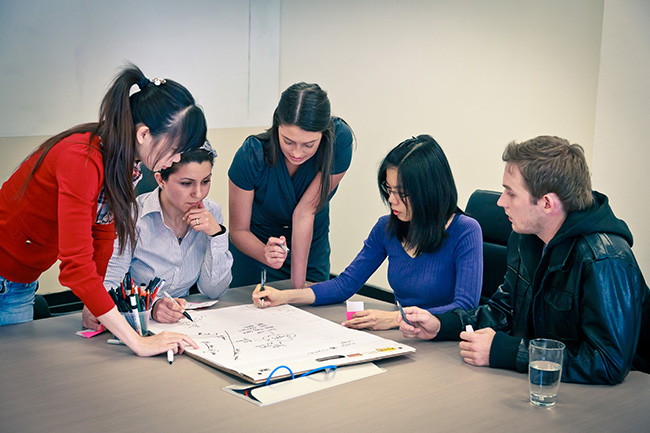
CTO to Women in IT: You Are Not Weird
“Women who want to work in this field still feel that it is weird or that men may not accept them. This needs to change,” writes Thoughtworks’ CTO.

Recently, I spoke to a room full of aspiring IT students during a conference at Harvard University. There were students from 40 U.S. colleges and universities. To be considered a role model for the next generation of computer science majors was a privilege and an honor. When I first started my career there were very few women in IT. In fact, when I was in school I was told that women were incapable of understanding math and science. Today, saying something like that simply isn’t socially acceptable. We’ve made progress. At Harvard University, 28% of current computer science concentrators are now women, compared to the national average of 20%. However, that number needs to grow, and there are many hurdles that women still face when entering the workforce, especially in IT.
When speaking to young adults about IT careers, I always try to give three pieces of advice:
- If you love math, science, technology, or computers you are not weird, you don’t need to apologize, and you should just go for it. You have found your passion, and that is extremely important.
- Make sure you keep current, and are confident in your ability to learn new things. You don’t need to know everything about every subject. Instead, keep an eye on the broad topic, and then dive into detail when the need arises.
- Be willing to ask for what you want. People won’t know you’re interested if you don’t tell them.
These three things are extremely important in today’s world.
I started at Thoughtworks as a senior developer after a software career that spanned different industries, pure research and academia. I eventually moved to the UK to start the Thoughtworks’ office there. When I moved back to the US from the UK, I was promoted to the position of Chief Technology Officer. While I was living in the UK, I was fortunate to have supporters who championed my capabilities as an IT professional, as well as helped me articulate what my own goals were. This advocacy was crucial in securing the role as CTO. One of the most important things I realized early on is that if no one knows what you can do, then it is unlikely that you will go down the path you are aiming for. Having people on your side rooting you on is essential to success, as is being able to articulate your goals to those making the decisions.
While promoting women in the IT workforce is a shared responsibility between employers and employees, there is a delicate balance between the organization’s responsibilities and the individual’s. I work for a company that has a little over 2,800 employees in twelve countries. I cannot take responsibility for every single employee, so it is important for individuals to know what they find interesting and what they want. However, organizations need to cast out a wider net and ask, “Are there women in this group that have not been considered before?”
The biggest challenge today is that people may not fully recognize the kinds of subtle biases that still exist. When hiring, people still tend to look for someone like themselves. This works against women. Stereotypes also continue to hurt the promotion of women in IT. Young aspiring women, who want to work in this field, still feel that it is weird or that men may not accept them. This needs to change. One necessary change is to accept that one isn’t evil for having a bias, as we all have them. The evil comes from not acknowledging the bias or refusing to mitigate against it.
I was once asked who my role model is. While my role models have changed over time, their characteristics have not. I have always admired those who are curious, and who are intellectually courageous. I believe that there is a need for more women in IT. However, I also know that many women already work in the industry. We need organizations to be courageous enough to promote those who are qualified and deserving, and we need individuals to be curious enough to learn more about the IT industry when they are first starting off.
Do you agree that the biggest challenge these days is people not recognizing their own subtle biases?
If you’re really bright, passionate about world-changing software and want to do something amazing, Join Us.
This blog originally appeared on Women 2.0.
Disclaimer: The statements and opinions expressed in this article are those of the author(s) and do not necessarily reflect the positions of Thoughtworks.














